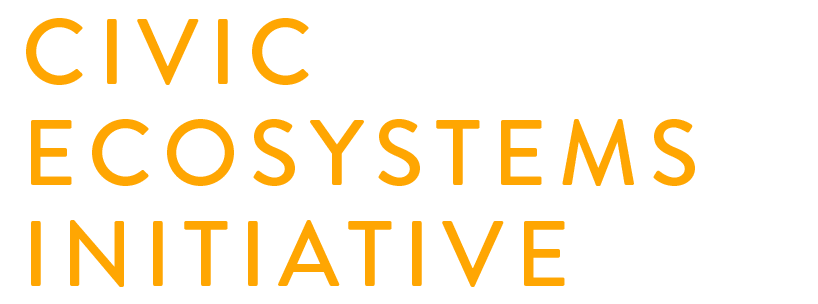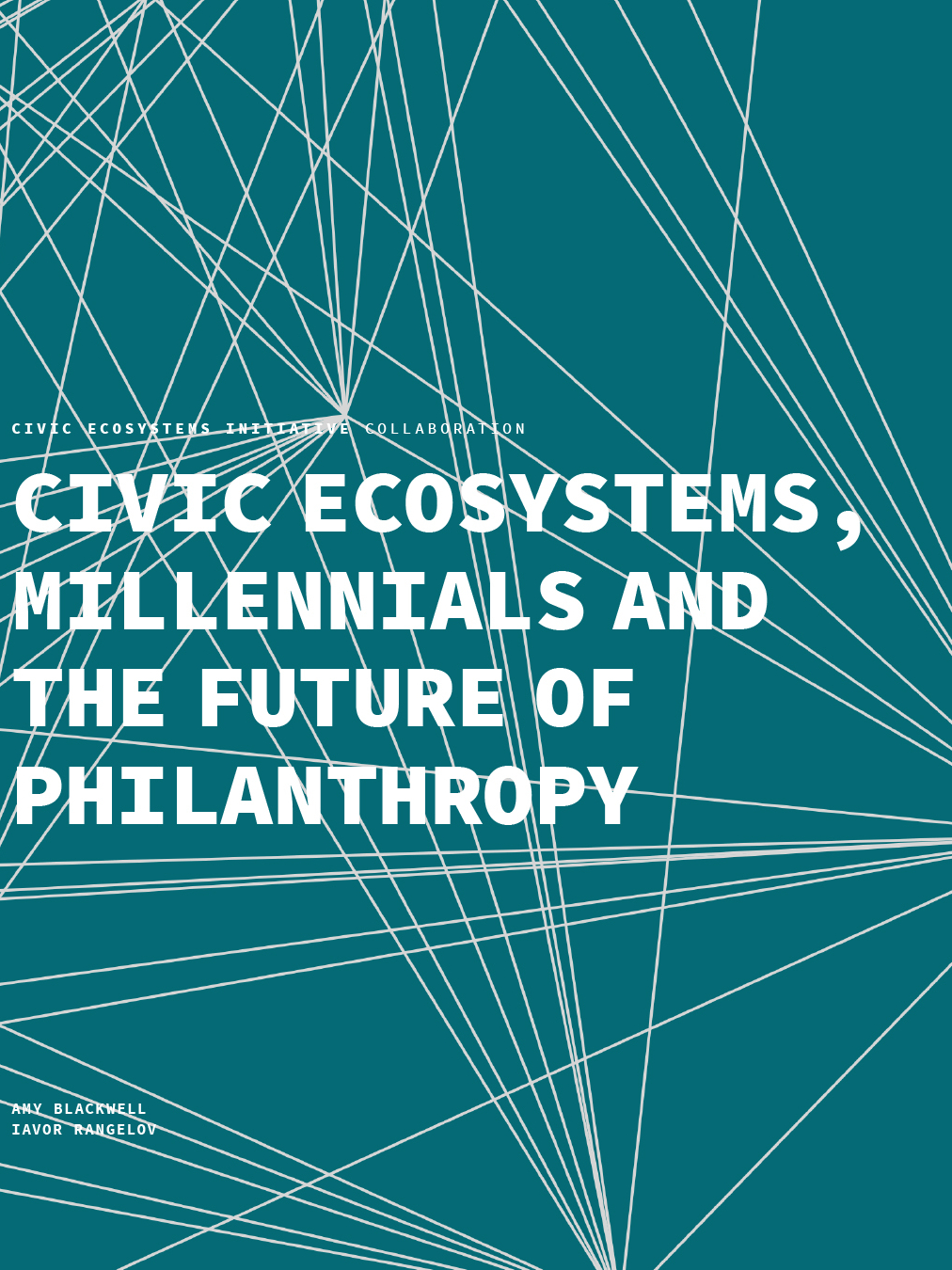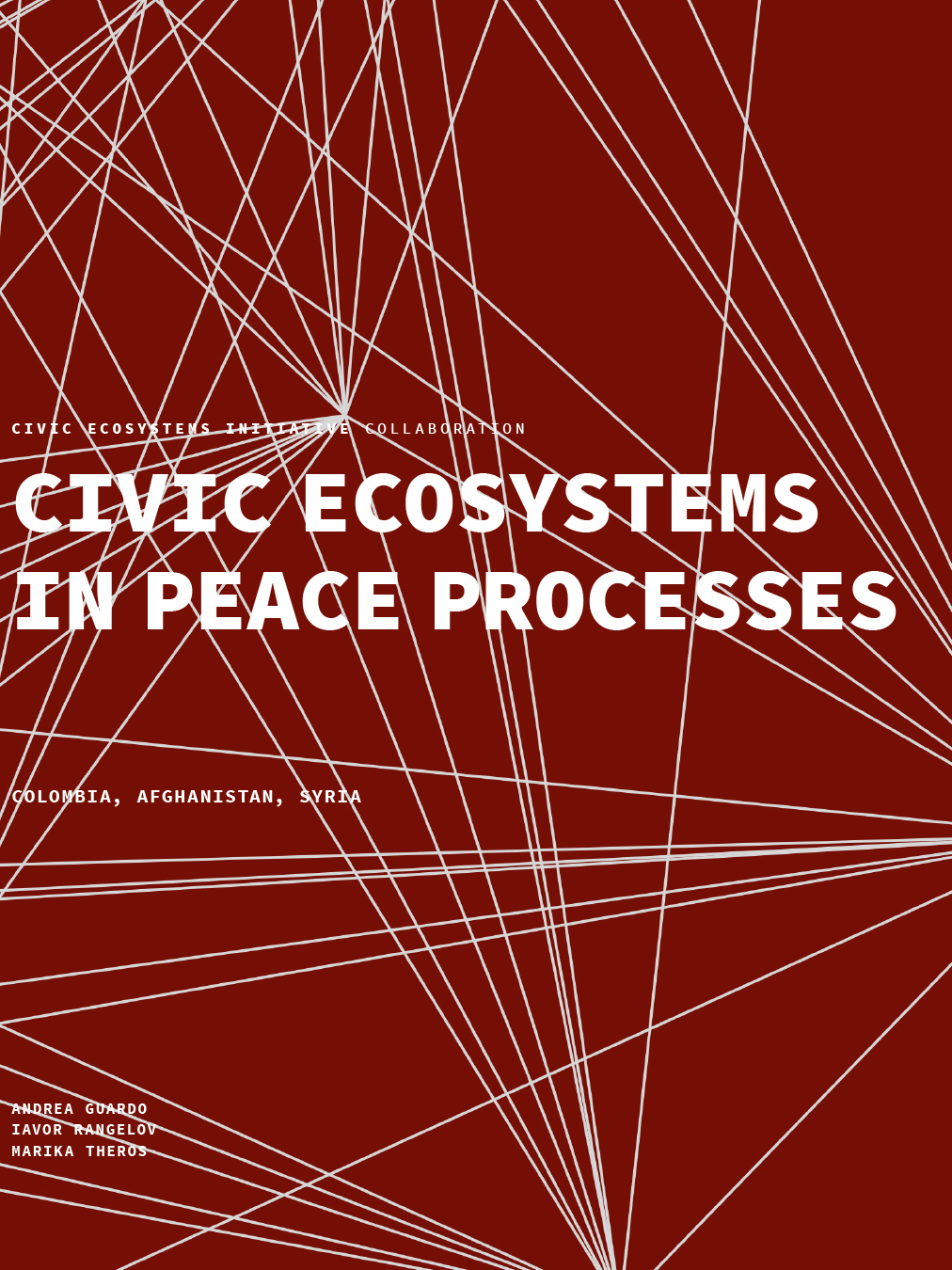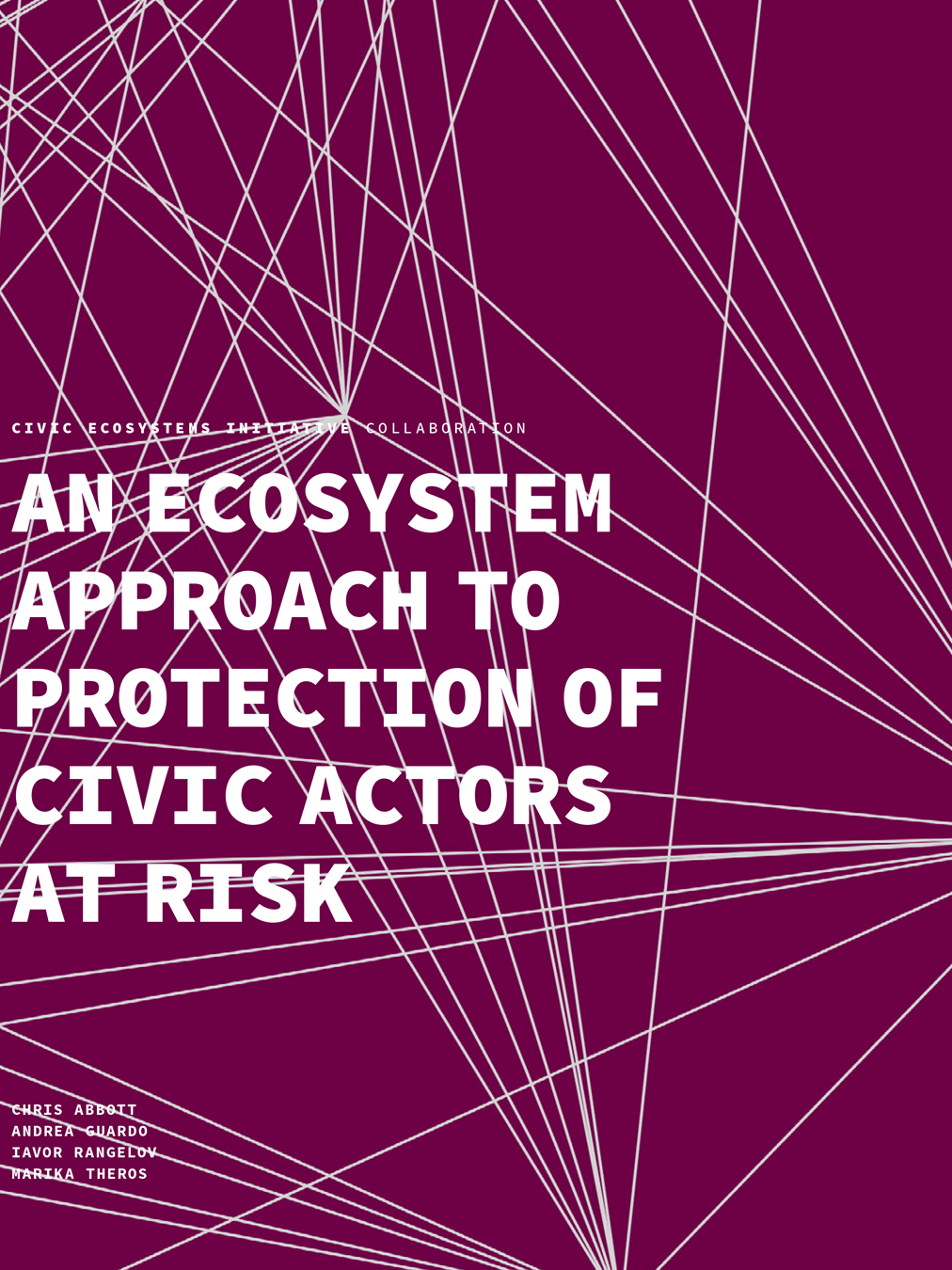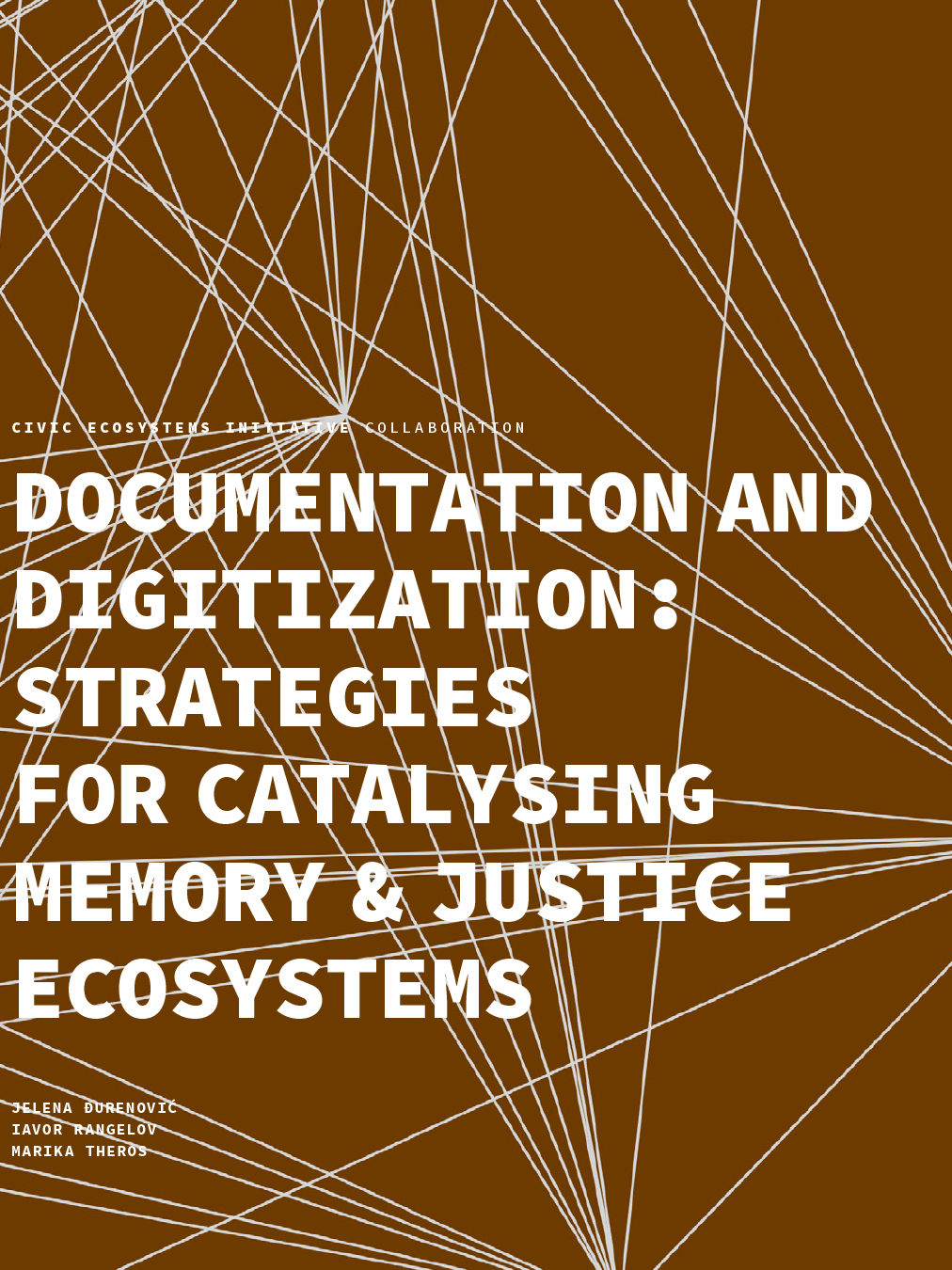The Civic Ecosystems Initiative is a space for thought leadership, insights, and new ideas about civic ecosystems and social innovation. We are a community of thinkers and doers leveraging ecosystem thinking to make visible, catalyze and strengthen the ecosystems driving social change in a rapidly shifting world.
WHAT ARE CIVIC ECOSYSTEMS?
Civic ecosystems are complex adaptive systems that emerge and self-organize to address specific social problems. They are vehicles for social innovation that leverage complementarity and have distinctive characteristics:
DIVERSITY is about the actors, approaches, and different theories of change in the ecosystem such as institutional change, pre-figurative experimentation, and personal transformation.
INTERDEPENDENCE draws attention to the ways in which ecosystem constituents interact, enable and constrain each other. And its value is in fostering complementarity.
CIVICNESS implies behavior and values that prioritize the public interest. It is what holds the ecosystem together.
INSIGHTS & IDEAS
IDEAS
Civic Ecosystems and Social Innovation: From Collaboration to Complementarity
Iavor Rangelov & Marika Theros
INSIGHTS
Insights from Multilayered Peacemaking: Peace as an Adaptive Ecosystem
Marika Theros, Andrea Guardo & Nisar Majid
INSIGHTS
Insights from the Justice Archive: How Documentation and Justice Ecosystems Co-Evolve and Coalesce
Iavor Rangelov & Ruti Teitel
CONTRIBUTORS
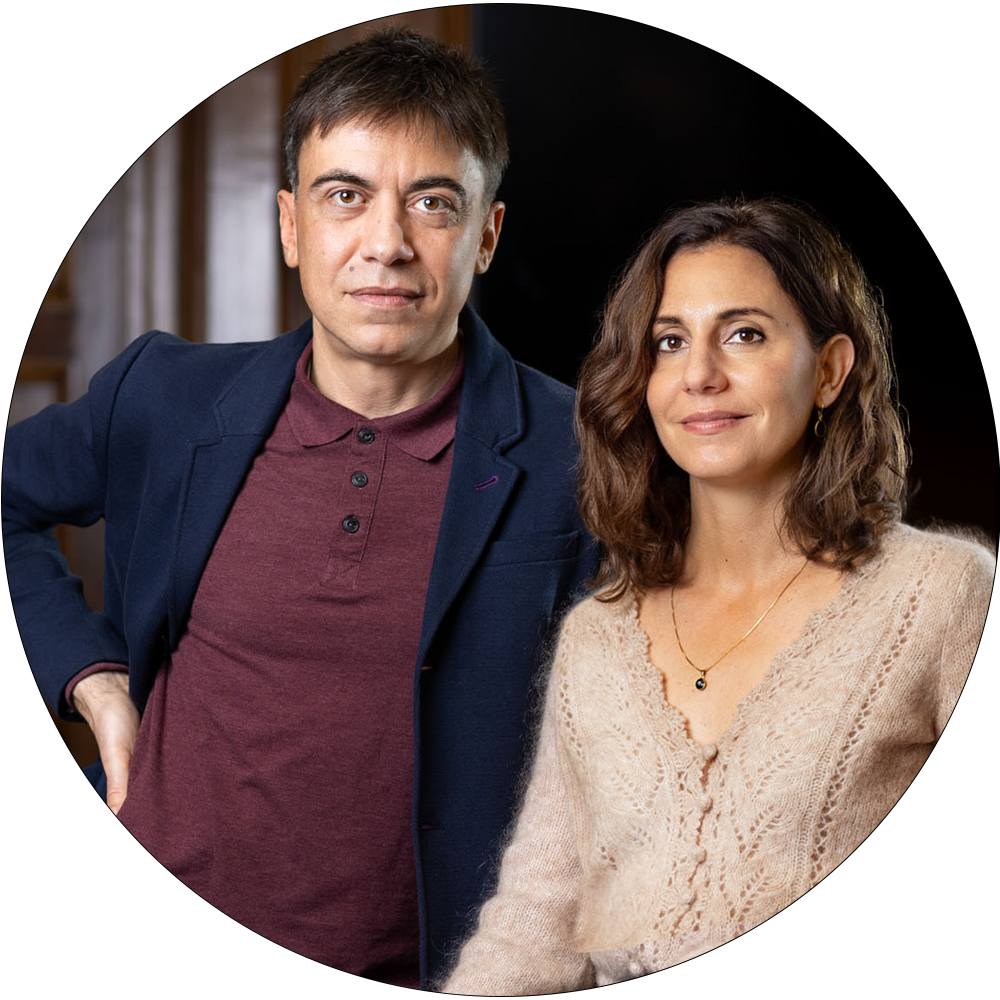
Iavor Rangelov & Marika TherosCo-Founders
Iavor and Marika pioneered the idea of civic ecosystems to capture what they have learned from two decades of studying social innovation and working with civic actors and practices addressing some of the world’s most complex and intractable problems. Their experience revealed the analytical value of ecosystem thinking to understand how the interactions and interdependence of civic actors shape their impact both individually and collectively. It also revealed the practical value of complementarity as a mindset and strategy.
Iavor is Research Fellow and Director of the Civic Ecosystems and Social Innovation program at the London School of Economics. Marika is Policy Fellow at the London School of Economics and Director of the Civic Engagement Project.
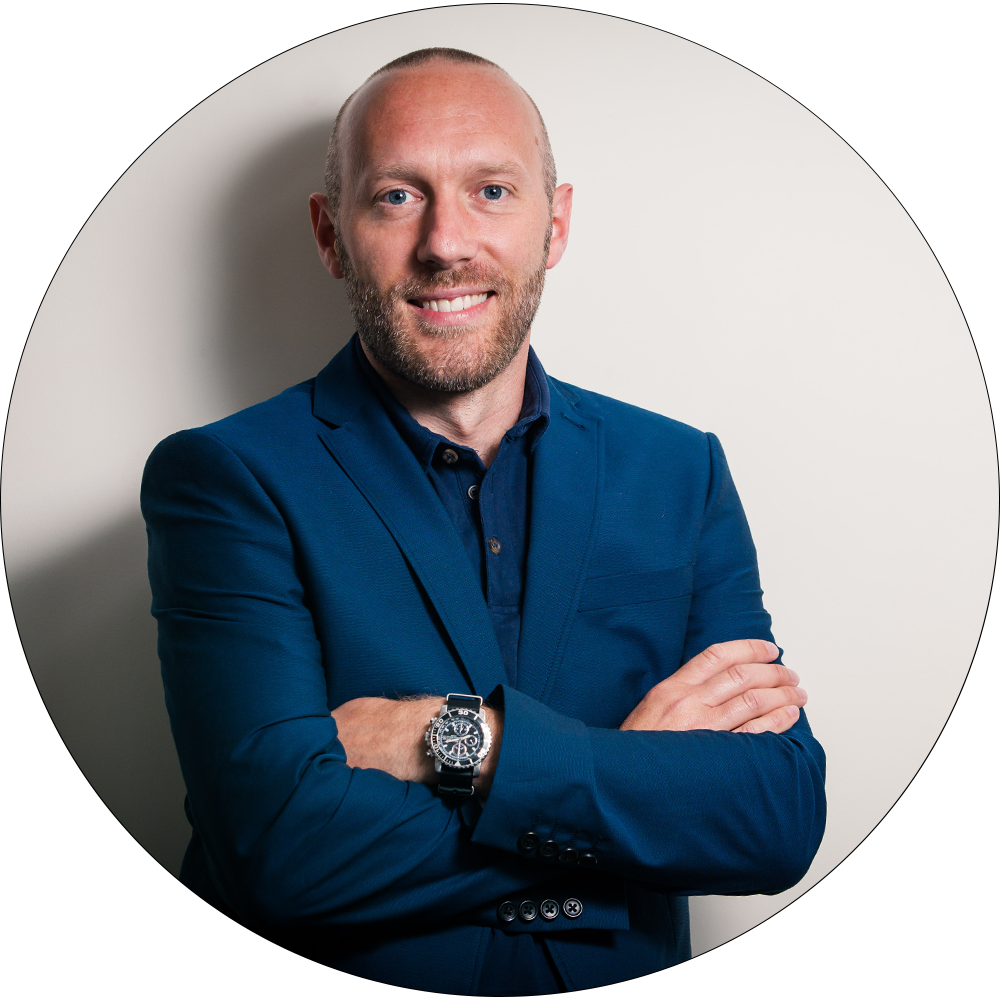
Chris Abbott
Chris helps civic actors at risk understand and manage their holistic security risks. He has a particular interest in scaling impact through the use of open resources and remote support. He is the lead author of the Holistic Security Protocol for Human Rights Defenders, the Minimum Operating Travel Security Standards (MOTSS), and Frontline Policies. In 2011, Chris founded Open Briefing, a non-profit that provides physical, digital and psychosocial security support to civic actors at risk around the world. He was previously the deputy director of the Oxford Research Group and an honorary research fellow in the Centre for Governance and International Affairs at the University of Bristol and in the School of Social and International Studies at the University of Bradford.
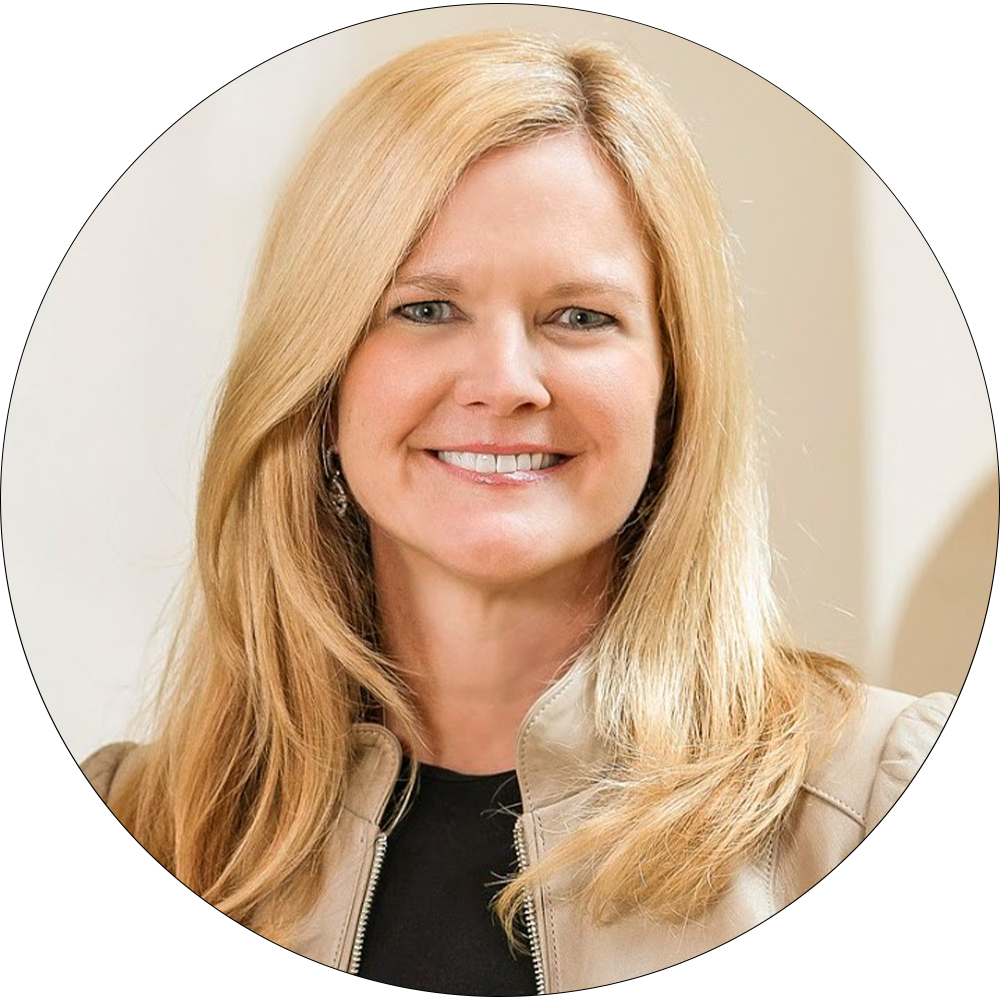
Amy Blackwell
Amy is an impact adviser working with families to design philanthropic strategies and incorporate impact investing in their portfolios. She specialises in building consensus across families to develop values-aligned frameworks for achieving social impact. Amy is particularly interested in the implications of the civic ecosystem model for resourcing social change, responding to the need for beneficiary-led solutions and the different ways in which millennials give and engage with social causes compared to previous generations. Amy founded her own consultancy practice and has extensive experience in the private and non-profit sectors.
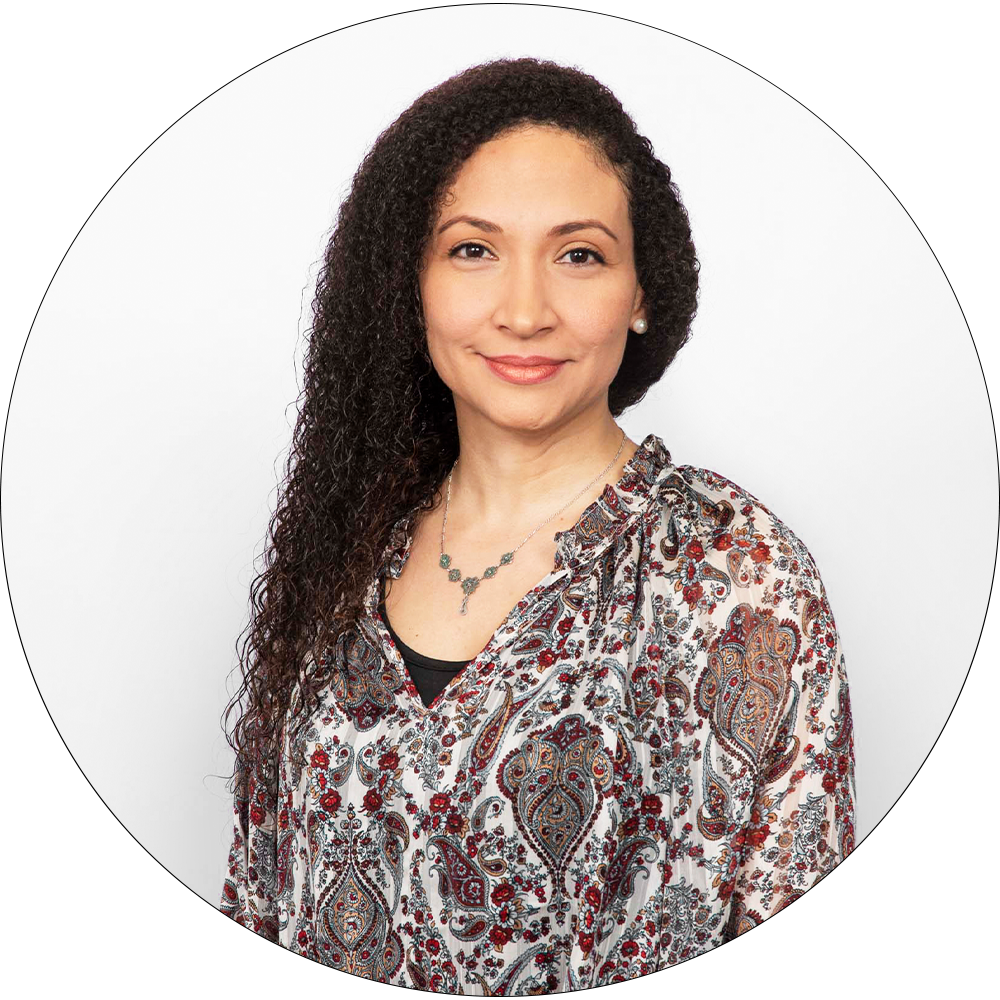
Andrea Carolina Guardo
Andrea is a Colombian policy adviser with extensive experience leading human rights, rule of law, and civil society programmes. She is particularly interested in the interactions of grassroots and top-level civic actors in driving sustainable development and peacebuilding, and in the political economies sustaining protracted armed conflicts and violence. Andrea has worked globally on developing people-centred approaches to public security and preventing democratic backsliding while at the Open Society Foundations, and innovating ways to expand civic space at the World Alliance for Citizen Participation (CIVICUS). She has provided strategic advice to the U.S. Institute of Peace and led groundbreaking programs at U.S.A.I.D in Colombia.
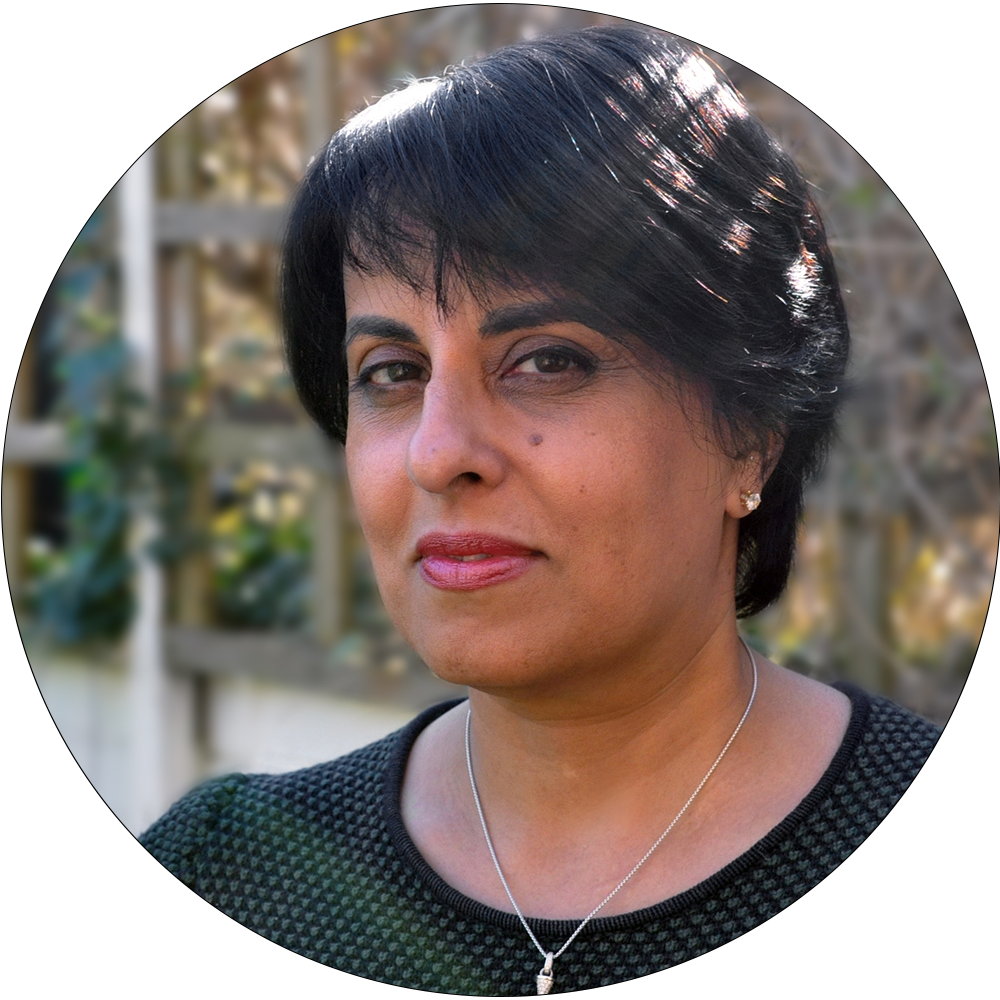
Poonam Joshi
Poonam helps independent philanthropy respond more strategically to the issue of closing civic space by advising funders on effective strategies to counter restrictions on freedom of assembly, expression and association. She has a particular interest in the trends that will shape the future of civic space over the next decade, including the increasing use by governments of counterterrorism and security laws, technological tools and discourse to criminalise, surveil and delegitimise civic actors. Poonam is the director of the Funders Initiative for Civil Society. Prior to this she was the Executive Director of the Sigrid Rausing Trust, and Director of the European Office for the Fund for Global Human Rights where she gained experience of supporting civil society in MENA, Balkans, South Asia and CEE.
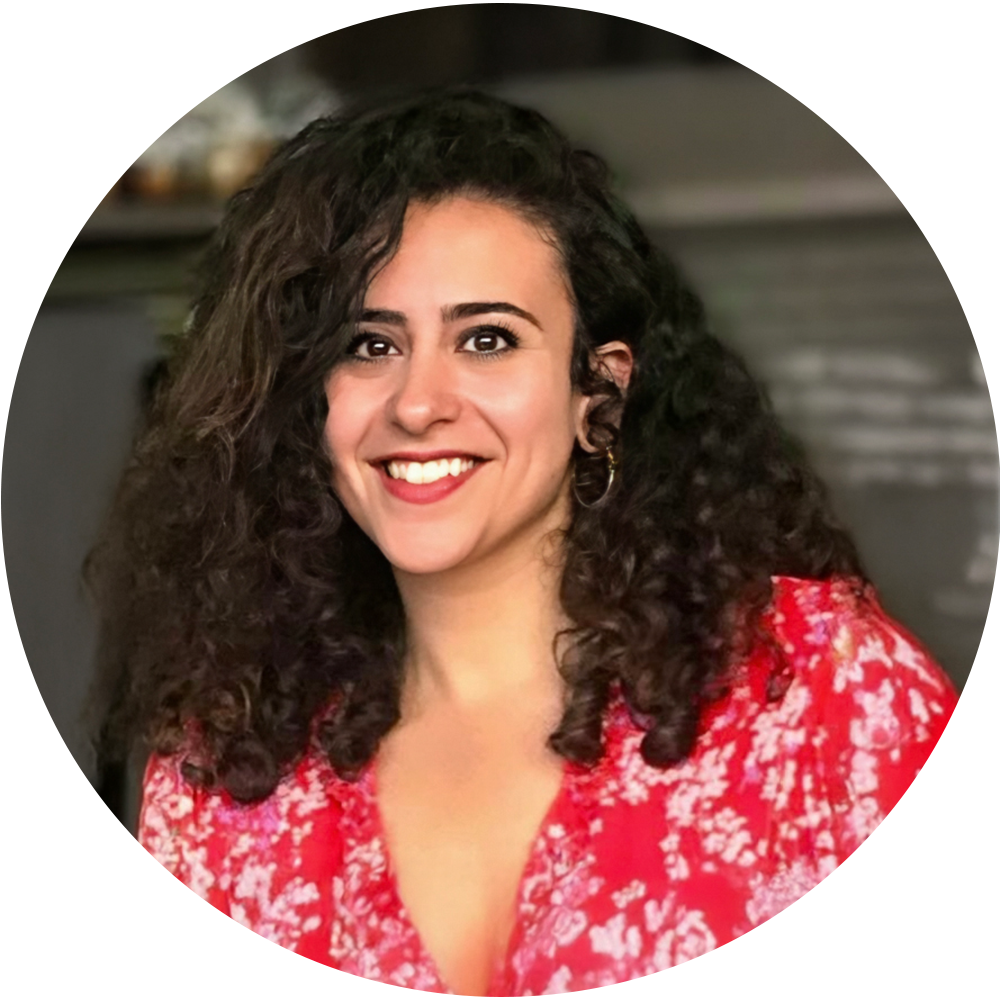
Dina Zayed
Dina is an independent consultant and participatory action researcher working at the intersection of climate adaptation politics and finance, international development, and public participation. She is a policy advisor and facilitator bridging research, communications, philanthropic grantmaking, advocacy and programmes for climate and social justice. Dina is interested in civic ecosystems as a tool for understanding complex social change and the role of civic activism and public participation in shaping policy. She is Associate Fellow at the Carboun Institute and serves on the Advisory Council of Alliance Magazine and the Board of ACTS Foundation Kenya. She has extensive experience working across sectors, including journalism, multilateral institutions, academia, civil society, and philanthropy.
ISSUES
COMPOUND CRISES
Today’s challenges are interconnected. Crises, shocks and disruptions increasingly overlap, interact, and reinforce one another. Civic ecosystems respond to these pressures by adapting, learning and innovating across multiple co-occurring crises to meet the needs of the moment while building resilience for the future.
CIVIC SPACE & MOBILIZATION
Even as civic space faces increasing legal restrictions, surveillance, and repression, civic mobilization is surging. From mass protest and grassroots organizing to strategic litigation, direct action and narrative change, people are finding new ways to push back. Adaptive and flexible, civic ecosystems help people and movements to seize unexpected openings, create opportunities and shift power – especially when traditional pathways to change are blocked.
CLIMATE & NATURE
Climate change and biodiversity loss are disrupting the complex, interdependent systems that sustain both natural and human environments, pushing our planet towards dangerous tipping points. Every choice we make – economic, social, political – shapes these impacts. By leveraging the strengths and complementarities of diverse actors and approaches, civic ecosystems create the multi-dimensional solutions we need to shift narratives, transform practices, and redirect financial flows across scales and geographies.
DOCUMENTATION & JUSTICE
Rapid technological change has strengthened our ability to document and expose abuses. And yet, justice is becoming more elusive. Civic ecosystems, with their adaptive capacities to circumvent blockages and seize openings, can open up new, non-linear pathways that turn documentation into a catalyst for justice.
PEACE & PROTECTION
Traditional pathways to peace and protection of civic actors at risk are failing, calling for new approaches and theories of change. Civic ecosystems go beyond both elite negotiations and reactive measures to reveal the wider networks, dynamics, and interactions – across scales – that shape outcomes and sustain or foreclose openings for peace and protection.
INFRASTRUCTURE & RESOURCES
Political and economic pressures, technological disruption and a deteriorating legal environment are depleting resources and upending infrastructure. Ecosystem thinking provides a way forward. It maps what already exists, shows how assets can be combined and scaled, and highlights where new resources and infrastructure are needed — leveraging complementarity to strengthen not only individual parts, but the ecosystem as a whole.
PODCASTS
Here you can listen to our podcasts.
What is Civicness?
Marika Theros and Iavor Rangelov discuss civicness with Professor Mary Kaldor, Director of the Conflict Research Group at the London School of Economics.
20 APR 2022 * 22 MINS
What is the Justice Archive?
Iavor Rangelov discusses the Justice Archive with Ruti Teitel, the Ernst C. Stiefel Professor of Comparative Law at New York Law School.
10 APR 2023 * 22 mins
Who carried out the Afghanistan evacuations?
Marika Theros discusses the Afghan evacuations with Ilaha Eli Omar, Co-Founder and Executive Director of the Uplift Afghanistan Fund.
8 SEP 2023 * 29 mins
RESOURCES
Here you can access further resources.
